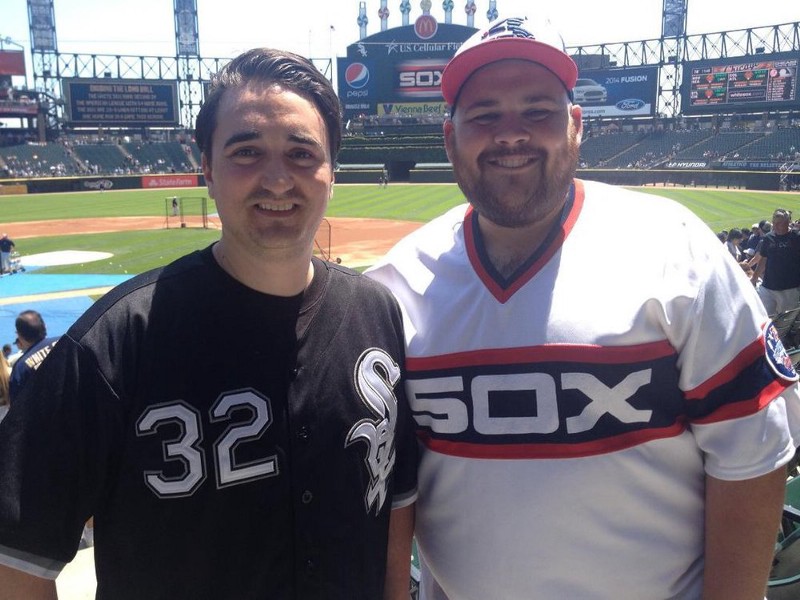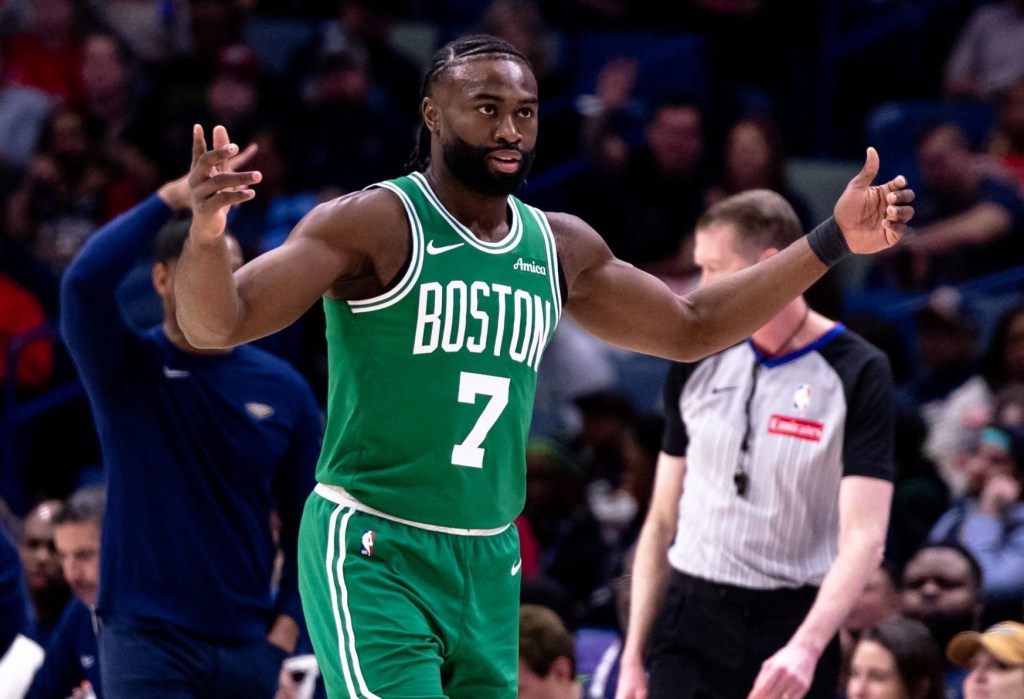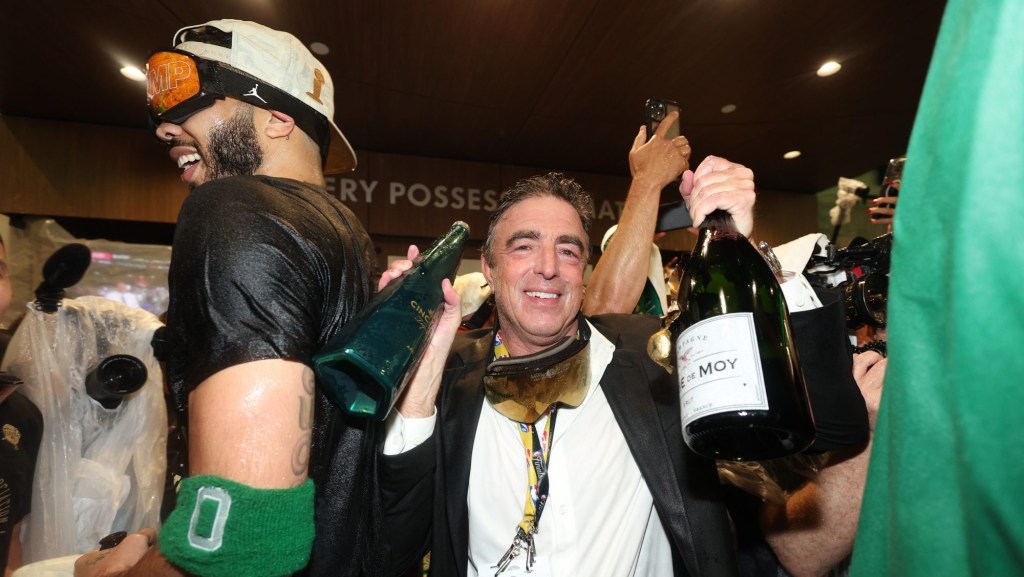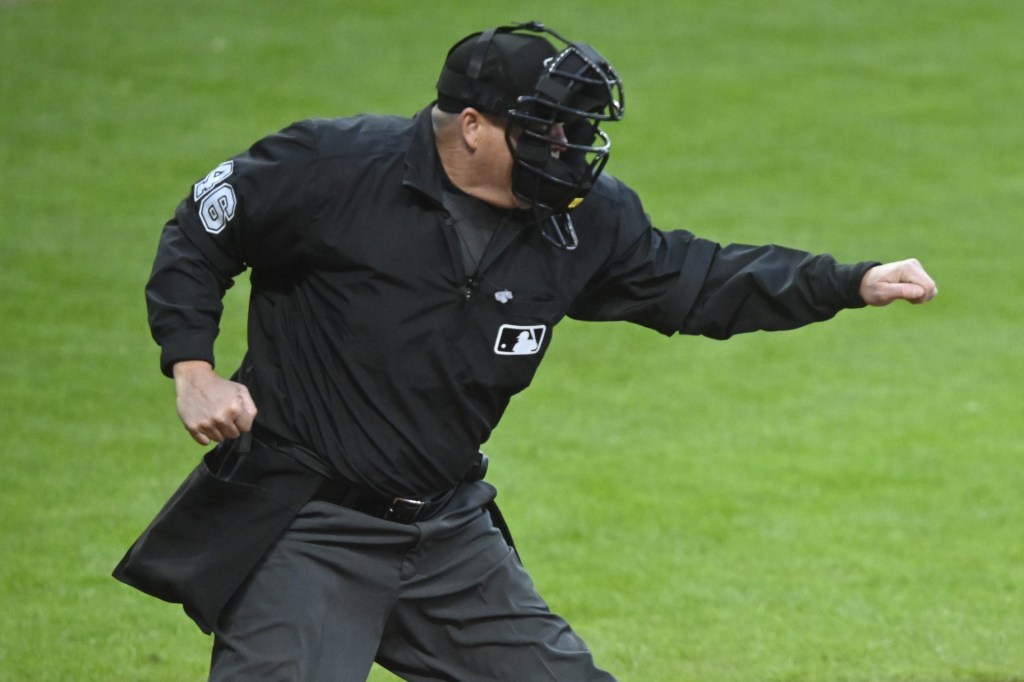By: Joseph Londergan, @joehio_

It takes a studious and adaptive personality to grow a career in the sport industry, particularly in sales. This is the lesson that became apparent to Mr. Jeff Lapsansky, the subject of today’s Front Office Sports feature. Jeff is currently the Ticket Sales and Marketing Manager for the BMW Championship, a PGA Tour event being held at Crooked Stick Golf Club in Carmel, Indiana in 2016. His career has included stints in sales with the Kane County Cougars, the St. Louis Blues and the Chicago White Sox.
Lapsansky is a graduate of Eastern Illinois University, where he was an active member of Sigma Nu Fraternity. He began his college career as an economics major, but made the decision to change his major after discovering his true calling.
“I switched over to sports management, just four or five classes shy of completing my major, knowing that I didn’t really want to do anything specifically related to economics. I wanted to work in sports. My story is probably similar to ones that you have heard before. I’d always wanted to be around the industry and I knew I wasn’t going to be able to play. I looked into different areas where I could get involved and make it a career. Sports are fun to talk about; they’re fun to be around.”
It was during this period of time that Jeff really began to learn all he could about a career in sports.
“I started reading several books on the subject in college, during my free time. One that really struck a chord with me was License to Deal by Jerry Crasnick. It was about his year long journey following a couple of ‘small time’ sports agents and their modest collection of clients, including former All-Star pitcher Dontrelle Willis. It exposed the incredible work ethic and tremendous investment of time and money that these agents put into maintaining their current client base, while also attempting to curry favor with potential new clients all around the country. More often than not, they would encounter competition from larger, more enchanting agents (such as Scott Boras) that would attempt to lure their clients away.”
“Often times, despite their best efforts, these young agents found themselves getting the short end of the stick. This book helped me realize several things about the sports industry. First and foremost that there are a lot of different jobs out there, many more than just the dream positions that we think of as kids, such as being the general manager of a team. It really got me thinking about the different components of a professional team’s front office and what their needs might be. The business side of our industry has grown exponentially over the past 20 or 30 years. I began thinking about what I could do to set myself apart and create a lasting career.”
After graduation, Lapsansky’s first opportunity in professional sport came in the form of an internship with the independent minor league baseball team, the Windy City ThunderBolts.
“The staff was very small with around five full-time people and four or five interns that they hire for the summer season. I’m sure that many are familiar with what it entails, working for a minor league baseball team. One of my main responsibilities was being the team mascot on a semi-regular basis and visiting sites around the community, such as local day care facilities and retirement homes. It was certainly a humble beginning, but it was a great place to work and an excellent learning experience that I wouldn’t trade for anything. Fortunately for me, I was also able to gain some ticket sales experience. So I parlayed that into a seasonal sales opportunity with the Chicago White Sox going into the following season.”
“I enjoyed sales from the beginning. I knew that I wanted to make a name for myself in the industry and quickly realized that there were opportunities for me to do so in sales. When you’re first starting out, jobs are few and far between that are not in sales. I took full advantage of every opportunity that I was given and continued to push my way forward as best I could.”
There is a sentiment that exists both in and outside of sales that if someone has a, “sales personality,” then they can successfully sell anything. While Lapasansky believes that while this may be true to an extent, selling something you have passion for makes the job far more pleasurable.
“Having the opportunity to sell in the sports industry was instrumental to my overall sales success. For me personally, I’ve never had the desire to sell computer paper. I don’t think I’d enjoy a career working over at Dunder-Mifflin, as much fun as it looks like Jim and Dwight are having. I think we all excel at the things that we are passionate about; things we care about. When you have a product that is invested in the community and when you have the support some of the amazing sales teams that I’ve had the privilege to a part of, I think that’s unique to sports. That’s what makes the job exciting and fun for me.”
It is this passion that has fueled Jeff’s desire to build on his existing knowledge and further explore new opportunities.
“As much as I like sales, I’ve had the opportunity to gain additional experience in marketing and advertising here with the BMW Championship, which are two areas that I am truly passionate about. I really enjoy overseeing our comprehensive ticket sales plans, distinguishing the big picture elements and setting the wheels in motion to achieve our organizations long term goals. Working for the BMW Championship has been a wonderful experience. The organization has enabled me to be creative in my current role, which has allowed us to enjoy a tremendous amount of growth.”
“When contemplating if an organization is the right fit, it’s important to look beyond wins and losses. Try to get a sense of the culture within the organization and make sure there is an opportunity for you to make an impact.”
— Jeff Lapsansky
It was also in his current position, or rather the hiring process for it, that Lapsansky was able to put his knowledge of the job hunt to use and leverage himself into an ideal opportunity.
“I believe that a key component to a successful job interview takes place in between your initial telephone conversation and your first in-person interview. Your prior experiences and accomplishments will lay the groundwork to make a great first impression. However, the questions that you ask during that initial conversation can provide the keys to being offered the position you are seeking. Thinking back to when I was interviewing for my current position with the BMW Championship, I recall discovering that one of their biggest needs was increasing group ticket sales for the tournament.”
“Armed with that piece of information, I was able to prepare a list of 15 detailed, unique ideas that I believed would increase ticket sales. So, not only did the hiring manager and I have a great conversation and a great interview, but he could tell that I’ve already started working. I realize that the demands of your coursework or the demands of your current job might make this difficult to accomplish in your free time, however, going that extra mile and being prepared for that position really goes a long way.”
That inquisitive and ambitious nature, along with being prepared for a change of scenery, can be very beneficial for any aspiring sports professional.
“I would imagine that most people have the desire to stay as close to their hometown as possible, but it’s highly likely that you’re going to move at some point if you’re looking to advance your career in sports. I was lucky to have landed a great position with the Blues in St. Louis, where my wife and I lived for four years before returning back to our hometown of Chicago. When contemplating if an organization is the right fit, it’s important to look beyond wins and losses. Try to get a sense of the culture within the organization and make sure there is an opportunity for you to make an impact.”
“Digging a little deeper into current attendance patterns or situation of the league is also important when considering professional sports teams. For example, consider the Collective Bargaining Agreement for that league. Knowing when that will potentially expire is something to take in to account. I think it’s important to also consider the hours involved and the timing of the season is a big factor. I’ve worked in professional baseball, hockey and golf. They’re all very different. Ultimately, I believe working in sports is similar to any job. If you’re a tax professional, you’re going to be busy around March and April. If you work for a baseball team, you should know that from April through September, you are going to be very busy. Being aware of everything that you’re getting yourself into before you even apply and deciding if that situation is what you really want is crucial to your success.”
It is people that consider these things that attract Lapsansky’s attention when he hires interns every year for the BMW Championship.
“To be considered for our internship, you need to be done with or completing school in the spring because our event takes place in September. Unfortunately that disqualifies many great candidates, but we do require that our interns work with us through the tournament. With that, we have a smaller group to select from. “
Another factor that makes a candidate more attractive for a potential new hire is having as much prior experience as possible.
“The resumes that really stand out and the candidates that we ultimately bring on board often have already done some sort of sports related internship. Frankly, that’s a very important part when considering the candidates. On average we’ll receive somewhere around 50 applications. From there we’ll speak with 20 and bring in five for a face-to-face interview. Out of the 20 that we have initial conversations with, close to all of them have already done at least one internship. Without that previous experience, you’ll have to come up with a pretty convincing reason why you are better than everyone else and portray that in your cover letter.”
However, Jeff understands that gaining this experience is sometimes easier said than done.
“I’m the first to admit that I was a little bit of a late bloomer. I didn’t complete an internship until I was finished with school. For individuals that find themselves in this position, reaching out to professionals in the sports industry in the area that you would like to pursuit can be very helpful. I’m an open book and I really enjoy helping people, especially young professionals who are looking to work in sports. I wouldn’t be shy about reaching out to some industry professionals that you look up to that work for an organization that you admire. Try to initiate a conversation. The worst thing they can do is not respond. Making an effort to reach individuals who might be able to help you out is always a positive step.”
One of the ways that a student or new graduate can begin to cultivate relationships with their colleagues, as wells as professionals that they aspire to be like, is through LinkedIn: a platform that Lapsansky believes is growing more and more useful in this industry.
“As you advance your career in sports, many of your friends and colleagues will move on to new opportunities with different organizations. With that, phone numbers and email address will likely change. LinkedIn is a great tool to keep in touch with many of these connections. With its many influencers and posts from major news outlets, it can also be helpful with keeping abreast on current trends in our industry.”
Maintaining your professional network is just one way to prepare yourself for the next step. Another, and perhaps the most important according to Lapsansky, is to be aware of what is expected of someone who has reached that next step, while always continuing to improve upon those essential skills.
“If you’re just beginning your career in sports, take a look at positions that are considered to be ‘out of your league.’ Let’s say you would like to be a Director of Ticket Sales, someday. Take a look at the skills, the qualifications and what that organization is looking for from the individual that they are looking to hire. Taking the time to learn those skills will go a long way. I think picking one area of your professional life that you would like to improve each year is the most important thing that you can do for yourself and for your career.”
“That advice is useful for any industry. If you want to expand your knowledge of digital marketing, then do it. Don’t wait for someone to teach you how, otherwise you may be waiting a very long time. You could go online and take some free courses or reach out to an industry professional who does a really good job with it and seek their advice. From there, you ask questions and you learn something new. In an industry as competitive as ours, it’s important to always continue to learn and evolve.”
Follow Jeff on Twitter here.
Connect with Jeff on LinkedIn here.

















